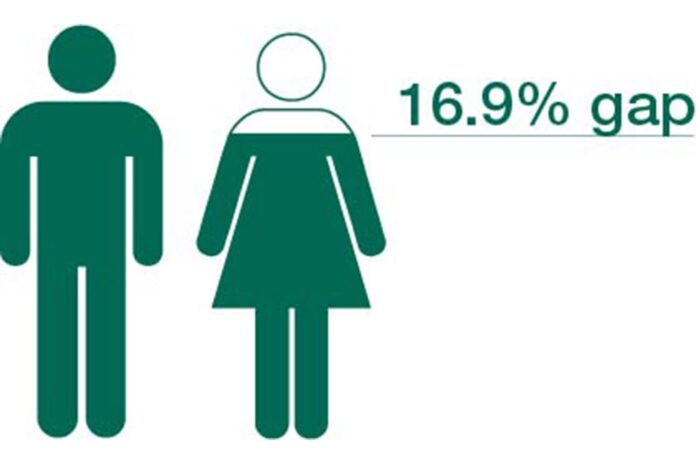Women trail men in financial confidence and literacy with youngest faring worst- Only 16% of women say they had a good school education on managing money
- Women under 40 are most worried about their standard of living falling
- Women aged under 30 less confident with almost all financial products than male peers
Lower literacy and confidence around financial products and markets is hampering women’s ability to build wealth, according to a new research study by Handelsbanken Wealth & Asset Management.
Handelsbanken Wealth & Asset Management’s report, Can we solve the gender wealth gap? highlights the breadth and depth of the disparity between men and women in their understanding of the financial world. The research reveals that women are more likely than men to admit to a limited understanding (or no understanding at all) of pensions, investments and mortgages and are even less confident than men in making decisions in these areas.
As a result, just 29% of women said that they would be confident in offering financial advice to friends and family, versus 43% of men. Of particular concern is that women under 30 register the lowest level of financial confidence of any demographic. They are less confident with all financial products than men the same age, other than savings accounts (+6%) and bank/current accounts (+5%). Almost a third (31%) of women under 30 think they are naturally bad at managing their finances, twice as many as those aged over 30 (15%).
According to the report, low financial confidence and literacy has contributed to a wealth gap, resulting in fewer women than men having pensions and savings, and those that do are saving less than their male counterparts. As a result, women aged between 20 and 40 are the most worried of all age groups about their standard of living dropping in the year ahead. Nearly two-thirds (66%) of women under 40 said they were worried, compared with 55% for the population as a whole and 57% for men in the same age group.
The report identifies how gender disparity in finance starts at an early age: just 16% of female respondents reported that they had received a good education around managing money, compared to 25% of men. There could be light on the horizon, however, as disparity in financial education was less acute among younger respondents, with 25% of women under 30 believing that they’d had a better school education relating to managing money than those aged 30 or older (15%).
Financial success for women does increase confidence and reduce the gender knowledge gap, however. The research found women with assets of £100,000-plus typically have a greater understanding of all financial products and are more confident about making financial decisions. On average they spend 10% more time a month looking at finances than women in general, the research found.
Among respondents with assets above £100,000, 61% were likely to encourage financial education in their children, while this figure was just 50% for the total population.
Lack of confidence has historic roots in legal and financial discrimination – it was only after the 1975 Sex Discrimination Act that women could open bank accounts and credit cards and take out mortgages in their own name. It took until 1990 for independent taxation to be introduced and married women to be assessed as individuals for tax.
Possible solutions to the female financial confidence crisis outlined in the report focus on advice and education. Handelsbanken Wealth & Asset Management urges women to make more use of financial advisers as a trusted experts.
Lucy Allington, Client Director at Handelsbanken Wealth & Asset Management said: “As we celebrate International Women’s Day, this report provides a sober reminder that there is still a lot of work to do in closing the gender wealth gap. More limited knowledge and confidence makes it less likely that women will participate in financial markets, share their financial knowledge with peers, and accumulate assets. Over time, this has the potential to create huge disparities in financial behaviour and wealth. In effect, a literacy gap can create – or exacerbate – a wealth gap.
“The lack of confidence and the way many women view their finances needs to change, and this all begins with financial education. Most adult women in the UK today were born and raised in an era when women were overtly discriminated against by the financial world. The older portion of these women have lived through a time when they couldn’t even take out a loan, or buy a home, without a male guarantor. We have a generation of younger women who have grown up without fully financially enabled female role models to learn from.
“Expert independent financial advice can help and there is a wealth of resources available to enable women to build their knowledge. Most important, however, is starting to learn early and it is critical that younger generations build their financial literacy as soon as possible.”
Women should make more use of financial learning resources such as those offered at Handelsbanken Wealth & Asset Management’s Learning Zone https://wealthandasset.handelsbanken.co.uk/learning-zone/ and through financial education events. Parents should consider taking older children to meetings with financial advisers and involving them in financial discussions, the report adds.

| [donate]
| Help keep news FREE for our readersSupporting your local community newspaper/online news outlet is crucial now more than ever. If you believe in independent journalism,then consider making a valuable contribution by making a one-time or monthly donation. We operate in rural areas where providing unbiased news can be challenging. |



















